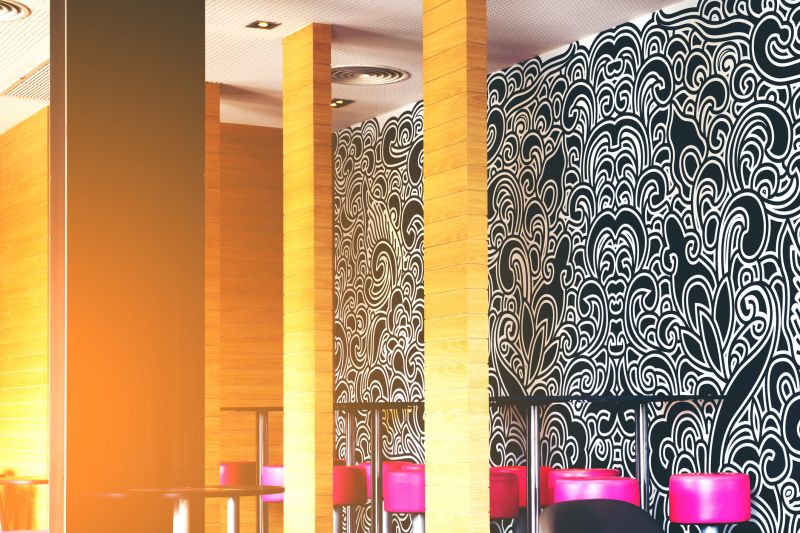Ultimate Collection Of Wallpaper Installation Tools And Supplies
Get all the essential products needed for a seamless wallpaper setup, ensuring professional quality at every step.
 Wallpaper installation is a detailed process that requires the right tools and products to achieve a smooth and professional-looking finish. From preparing the wall surface to applying the wallpaper and ensuring proper adhesion, each step benefits from specialized products designed to simplify the task. Proper tools can help minimize air bubbles, wrinkles, and mismatched seams, resulting in a more polished appearance. Whether you're a DIY enthusiast or a professional, selecting quality products can make a significant difference in the outcome of your wallpaper project.
Wallpaper installation is a detailed process that requires the right tools and products to achieve a smooth and professional-looking finish. From preparing the wall surface to applying the wallpaper and ensuring proper adhesion, each step benefits from specialized products designed to simplify the task. Proper tools can help minimize air bubbles, wrinkles, and mismatched seams, resulting in a more polished appearance. Whether you're a DIY enthusiast or a professional, selecting quality products can make a significant difference in the outcome of your wallpaper project.
Top Overall Option
Comprehensive Wallpaper Application Kit
A complete wallpaper application kit typically includes a variety of essential tools such as smoothing brushes, seam rollers, cutting knives, and adhesive spreaders. These kits are designed to streamline the installation process, providing everything needed in one package for both beginners and experienced users. The versatility of a comprehensive kit allows for handling different wallpaper types and wall conditions, making it a reliable choice for various projects.
Types of Products For Wallpaper Installations
Wallpaper Adhesive
Specialized adhesives formulated for different wallpaper types ensure proper adhesion and durability.
Primer and Sealant
Primers help prepare walls for better adhesion, especially on difficult surfaces or previously painted walls.
Smoothing Tools
Tools like smoothing brushes and plastic spatulas help eliminate air bubbles and wrinkles during application.
Seam Rollers
Seam rollers press seams flat, ensuring they stay aligned and secure.
Cutting Knives
Sharp knives and blades facilitate precise trimming along edges and around outlets.
Measuring Tapes and Levels
Accurate measurements and level lines are crucial for aligning wallpaper correctly.
Wallpaper Paste Brushes
Brushes designed for applying adhesive evenly on the back of wallpaper or wall surfaces.
Edge Trimmers
Tools to cleanly trim excess wallpaper along edges and corners.
Wallpaper Steamer
Steamers help remove old wallpaper efficiently before new installation.
Drop Cloths and Tape
Protect surfaces and ensure clean edges during installation.
Leveling Tools
Ensure wallpaper is hung straight with laser or bubble levels.
Adhesive Spreaders
Tools for evenly spreading adhesive on large sections of wallpaper.
Corner Tools
Specialized tools for handling corners and edges for a seamless finish.
Cleaning Cloths
Soft cloths for wiping excess adhesive and cleaning surfaces after installation.
Popular Choices
A versatile smoothing brush that helps eliminate air bubbles and wrinkles during application.
Peel-and-stick wallpaper options that simplify installation without the need for additional adhesives.
A durable roller used to press seams flat and secure them in place.
A sharp utility knife designed for clean cuts along edges and around fixtures.
Primers that prepare walls to improve adhesion and reduce future peeling.
Brushes that help spread adhesive evenly over large sections of wallpaper or wall surfaces.
Laser levels assist in aligning wallpaper strips accurately for a professional look.
Tools designed to help remove old wallpaper efficiently before new installation.
Tools that provide clean, precise edges along borders and corners.
Heavy-duty cloths to protect floors and furniture during installation.
Laser measurement devices for quick and accurate wall dimensions.
Products used to seal seams and prevent peeling or lifting over time.
Spatulas that help smooth out wallpaper in tight corners and edges.
The process begins with wall preparation, which often involves cleaning, patching, and priming surfaces to ensure optimal adhesion. Adhesives and primers tailored for wallpaper are essential to secure the material firmly and prevent future peeling. Once the wallpaper is aligned and applied, smoothing tools are used to eliminate air pockets and wrinkles, ensuring a seamless look. Finishing touches, such as trimming excess material and cleaning up edges, rely heavily on precise cutting tools and finishing supplies.
Investing in the right products can also improve efficiency, reduce frustration, and enhance the overall aesthetic of your wallpaper installation. Many products are designed to accommodate different types of wallpaper, including vinyl, fabric, peel-and-stick, and textured varieties. Understanding the specific requirements of your wallpaper type and the characteristics of your wall surface can help you choose the most appropriate tools and accessories for a successful project.
Key Buying Considerations
- Compatibility with your wallpaper type, such as vinyl, fabric, or peel-and-stick.
- Wall surface condition and whether priming or patching is necessary before installation.
- Ease of use and ergonomic design of tools for prolonged projects.
- Adhesive strength and whether it matches the wallpaper material and wall type.
- Tools that provide precise measurement and alignment to ensure a seamless finish.
- Durability and quality of smoothing and trimming tools for repeated use.
- Availability of replacement blades or parts for ongoing maintenance.
- Size and weight of tools for comfortable handling and maneuverability.
- Compatibility of adhesives with wall surfaces and wallpaper materials.
- Ease of cleaning tools after use to maintain their longevity.
- Cost-effectiveness when purchasing multi-piece kits versus individual tools.
- Brand reputation and customer reviews for reliability and performance.
- Additional features like built-in level indicators or ergonomic grips.
- Storage options for organizing tools efficiently after project completion.
- Environmental considerations, such as low VOC adhesives or non-toxic materials.
